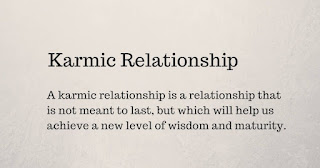Love Psychology Facts: The Science Behind Love and Relationships
Love is one of the most mysterious and powerful emotions that humans feel. It can make us do crazy things, and it often seems to defy explanation. But what is love really? And what is the science behind it? In this blog post, we will explore the psychology of love and relationships. We will discuss different theories about love, and we will look at research on how love affects our brains. Stay tuned for some fascinating insights into the love psychology facts!
One of the most popular theories about love psychology facts is the triangular theory of love. This theory was first proposed by psychologist Robert Sternberg in 1986. The triangular theory of love states that there are three components of love: passion, intimacy, and commitment. Passion is the physical or sexual attraction between two people. Intimacy is the emotional connection between two people. Commitment is the decision to remain in a relationship.
According to the triangular theory of love, all three components are necessary for a relationship to be considered “love.” However, it is possible to have relationships that are high in one or two of these components, but low in the others.
For example, a one-night stand would be considered a relationship that is high in passion, but low in intimacy and commitment. A long-term relationship that is devoid of physical attraction would be considered one that is high in intimacy and commitment, but low in passion.
Interestingly, research has shown that the three components of love psychology facts are not always equally important to everyone. In a study of married couples, it was found that women place more importance on intimacy and commitment than men do.
Men, on the other hand, place more importance on passion than women do. These findings suggest that men and women may have different priorities when it comes to love and relationships.
Another interesting theory about love is the social exchange theory. This theory states that people enter into relationships because they believe that they will benefit from them in some way.
For example, people may stay in a relationship because they think it will make them happy or because they think it will help them meet their needs. The social exchange theory is a popular one, but it has been critiqued for its lack of focus on the emotional aspects of love.
Love is one of the most powerful emotions we experience as human beings. It can cause us to feel amazing highs and devastating lows. It can make us act in ways we never thought possible. And it can change our lives forever. Here are 10 fascinating psychological facts about love:
1. Love is a basic human emotion, but it behaves differently in different people.
2. love is not mandatory for a happy life, but it can certainly help.
3. Love can be pure and selfless, or it can be selfish and destructive.
4. The "love hormone" oxytocin plays a key role in bonding and attachment, but it also has a dark side.
5. Love sometimes makes us irrational and causes us to behave irrationally.
6. Love is often associative, meaning we tend to love people who remind us of someone else (positive or negative).
7. Love is often used as a weapon by abusers to control their victims.
8. Love addiction is a real thing, and it can be just as destructive as any other addiction.
9. True love takes work, compromise, and sacrifice. It's not always easy.
So, what is the science behind love? What can we learn from research about how love affects our brains? Stay tuned for part two of this blog series to find out!




Comments
Post a Comment